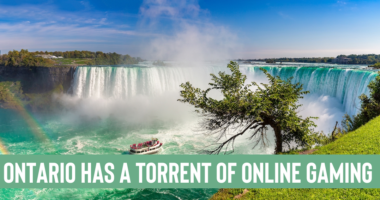What Illinois Can Learn From The Online Casino Market In Ontario

Go directly to the content

The extended delay in the legalization of the Illinois online casino market may be frustrating for some residents, but it could ultimately prove to be beneficial.
On February 8, Senator Cristina Castro introduced SB1656, known as The Internet Gaming Act, in the Illinois Senate. At the same time, Representative Edgar Gonzalez Jr. introduced a companion bill, HB2239, in the House.
As the bills move through the Illinois General Assembly, state legislators can learn important lessons from neighboring states and jurisdictions that have already approved iGaming.
Today, we will analyze the online casino industry in Ontario, Canada, a neighboring province to Illinois that shares the Great Lakes, to identify potential lessons that Illinois could learn from it.
Ontario’s online betting market is massive
Ontario’s online betting market is not just about its 15 million residents, but also includes a significant number of online casino and sportsbook operators.
As of April 4, 2022, Ontario has become the leading jurisdiction in North America for online gaming with 44 active operators overseeing 68 different sites.
There are currently only seven online sports betting operators in Illinois, all operating as mobile sportsbooks due to the lack of legal iGaming in the state.
Ontario is home to several European-based operators that provide exciting action, including bet365, Fitzdares, BetVictor, Pinnacle, Unibet, and more.
In order to maximize the potential of the iGaming market in Illinois, it is essential to increase the number of operators. Additionally, introducing a few international operators could enhance the betting options available to players.
Ontario gaming commission cracks down on advertisements
The AGCO has the authority to regulate gaming operators in Ontario, with a particular focus on enforcing the province’s strict advertising laws, which are more rigid compared to those in Illinois.
Take AGCO rule 2.05 into account, which prohibits the promotion of “gambling inducements, bonuses, and credits” through advertising and marketing. The only exceptions to this rule are when incentives are provided on a licensed operator’s platform or distributed directly to bettors who have provided their consent.
Furthermore, according to rule 2.04, operators are required to ensure that their advertising and marketing practices are truthful and do not deceive or mislead players regarding their products. It is explicitly prohibited to imply that placing a larger bet will improve the chances of winning.
The Illinois Gaming Board is unlikely to implement extremely strict regulations, but implementing stricter advertising laws for gaming operators would be a positive step forward. It is important to have a plan in place to address the increase in problem gambling once online casinos are legalized, and limiting advertising could be a successful first step.
Proposed fee for Illinois online casino license more reasonable
One of the main contributing factors to Ontario having a higher number of gaming operators than Illinois is the significant disparity in entry costs.
There are a minimum of 14 opportunities for new online sportsbooks to enter the Illinois market.
- Six has formed a collaboration with a bustling physical casino.
- With a retail casino applicant, a partnership was formed resulting in five.
- Three licenses were granted by an online-exclusive sportsbook.
- Possibly up to four individuals connected to a professional sports facility.
In Illinois, obtaining a sportsbook license can be done in several ways, each with its own cost. The base price for a license is $5 million. Partnering with a retail casino incurs a fee of 5% of adjusted gross receipts. Running a sportsbook at a professional sports venue costs $10 million. For those looking to operate an online-only sportsbook, the fee is $20 million.
Online gaming companies in Ontario must pay an annual regulatory fee of $100,000 per gaming site. Providers of gaming services and equipment are subject to a $3,000 registration fee each year, while manufacturers of gaming equipment must pay $15,000 annually.
Illinois lawmakers have acknowledged the high cost of entry for online sportsbooks in the state. To address this issue, they have introduced the Internet Gaming Act, which proposes that Illinois online casinos pay a licensing fee of $250,000 and a renewal fee of $100,000. This move is expected to attract more operators to the market. A similar approach in Ontario, where operators pay an annual fee of $100,000, has proven to be successful in encouraging business from different jurisdictions around the world.
The Ontario online market isn’t perfect
The AGCO struggled to transition grey market gaming operators into the legal market following the implementation of new regulations in Ontario. These operators, who operate outside of the law but are not actively prevented from accepting bets from Canadians, are not officially recognized by the legal system.
Despite Ontario’s announcement of impending gaming regulations in August 2021, grey market operators continued to accept bets without facing consequences for over a year. The AGCO then announced on January 28, 2022, that the online market would officially launch on April 4.
Nonetheless, operators in the grey market persisted in accepting bets until October 31, during which time they successfully transitioned to the regulated market.
Grey market sites were able to gain an edge by avoiding AGCO regulations, enabling them to maintain a loyal customer following even after the legalization of the market. This created an unfair situation for both Ontario taxpayers and legitimate gaming operators who were abiding by the law.
While it was a smart decision to bring grey market operators into regulation, the approach taken by the AGCO was disappointing.






